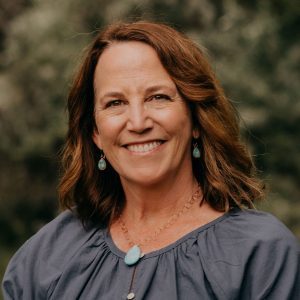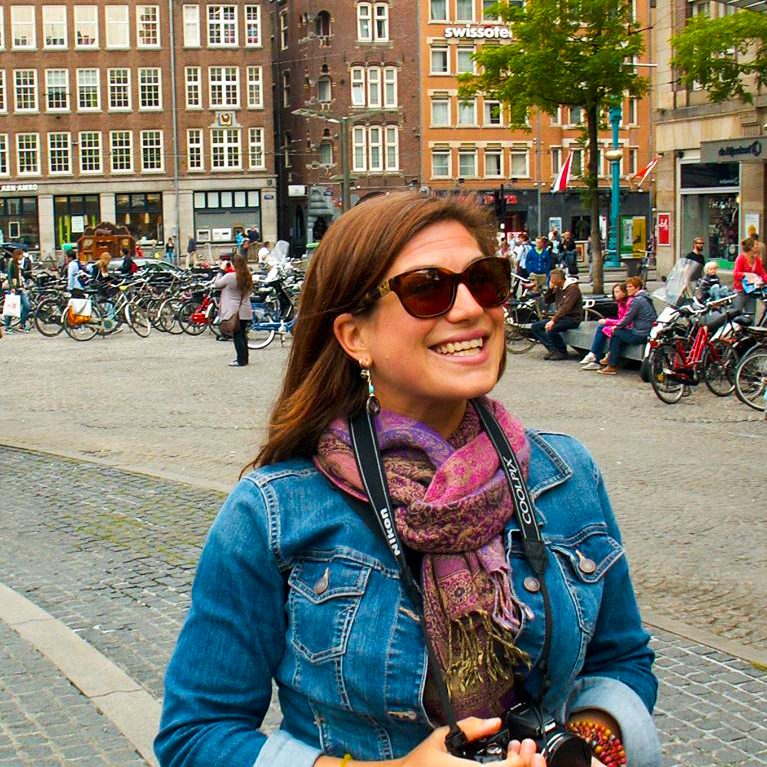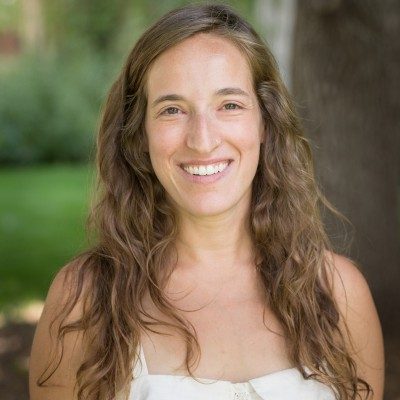
Mindy Hill
Teaching
Mindy Hill, MAT, serves as the Program Manager for CEJ. She is an educator and school administrator with three decades of experience with service learning and community engagement. Mindy enjoys supporting students, faculty, and staff at CSU through the creation of workshops, courses, and career connections. Current projects include the NoCo Food Justice Kit, EJ Graduate Certificate, Climate Grief & Resiliency Course and student workshops.
Research
Mindy's role is to connect faculty across disciplines with research partners. She supports staff and faculty drafting research proposals.
Engagement
Mindy supports a variety of engagement events and projects throughout the region. She serves on the Climate Transitions Dialogue team, the President's Sustainability Commission, and the Civic Centers Collaborative at CSU, as well as the Our Climate Futures team with the City of Fort Collins. She manages the Java & Justice Series and all other CEJ events.

Stephanie Malin
Teaching
As an Associate Professor in the Department of Sociology at Colorado State University, Stephanie is an award-winning teacher of undergraduate courses on environmental justice, water and society, and environmental sociology and a graduate course in Environmental and Natural Resource Sociology.
Research
Stephanie A. Malin, Ph.D. is an environmental sociologist specializing in environmental and natural resource sociology, governance, and rural development. She conducts community-based and mixed methods research focusing on the community impacts of resource extraction, energy production, and environmental de-regulation. Her main interests include environmental justice, environmental health, social mobilization, and the socio-environmental effects of market-based economies.
Engagement
Stephanie is the author of The Price of Nuclear Power: Uranium Communities and Environmental Justice (published by Rutgers University Press, May 2015) and has published her research in journals such as Social Forces, Environmental Politics, the Journal of Rural Studies, and Society and Natural Resources.

Madeline Schomburg
Teaching
Dr. Schomburg's current work focuses on the role of narrative in shaping environmental policy outcomes on a broad range of issues. She is broadly interested in human-environment interactions and the ways in which people mobilize for change around environmental policy problems, particularly in the context of environmental justice.
Research
Dr. Schomburg's work covers the fields of Environmental Policy and Environmental Justice. Most of her work has focused on domestic unconventional oil and gas development, investigating the role of interest groups in mobilizing constituents to participate in political processes and the role of policy entrepreneurs in diffusing relevant policies throughout the United States.
Engagement
Madeline Schomburg's scholarship has appeared in Policy Studies Journal and Economics of Energy & Environmental Policy.

Dimitris Stevis
Teaching
At the undergraduate level I teach international relations, international political economy, and green political economy with a focus on justice. I have also taught capstones on global labor politics. At the graduate level I teach Politics of the Environment and Sustainability, Governance of the World Political Economy, International Environmental Politics as well as special seminars on transnational social policy and green political economy.
Research
Dimitris' research examines the social governance of the world political economy in the areas of labor and the environment, with particular attention to power and justice. He has recently coedited (with Edouard Morena and Dunja Krause) Just Transitions: Social Justice in the Shift towards a Low Carbon World (Pluto Press 2020) and (with Nora Räthzel and David Uzzell) the Handbook of Environmental Labor Studies (Palgrave Springer, 2021) and is completing a book on the global history and politics of just transitions. He continues to pursue research on just transitions, environmental labor studies, planetary justice, systems of sustainable production and consumption, and ‘hidden figures’ in global environmental politics. He has recently published in Environmental Politics, Political Geography, Globalizations, Earth System Governance Journal, and Resources, Conservation & Recycling.
Engagement
In addition to co-directing the Center for Environmental Justice at CSU Dimitris is also a joint convener of the Just Transition Research Collaborative, housed at the United Nations Research Institute for Social Development, and a member of the organizing committee of the Just Transition Listening Project of the Labor Network for Sustainability. Over the last several years he has helped produced a significant amount of engaged and public facing scholarship.